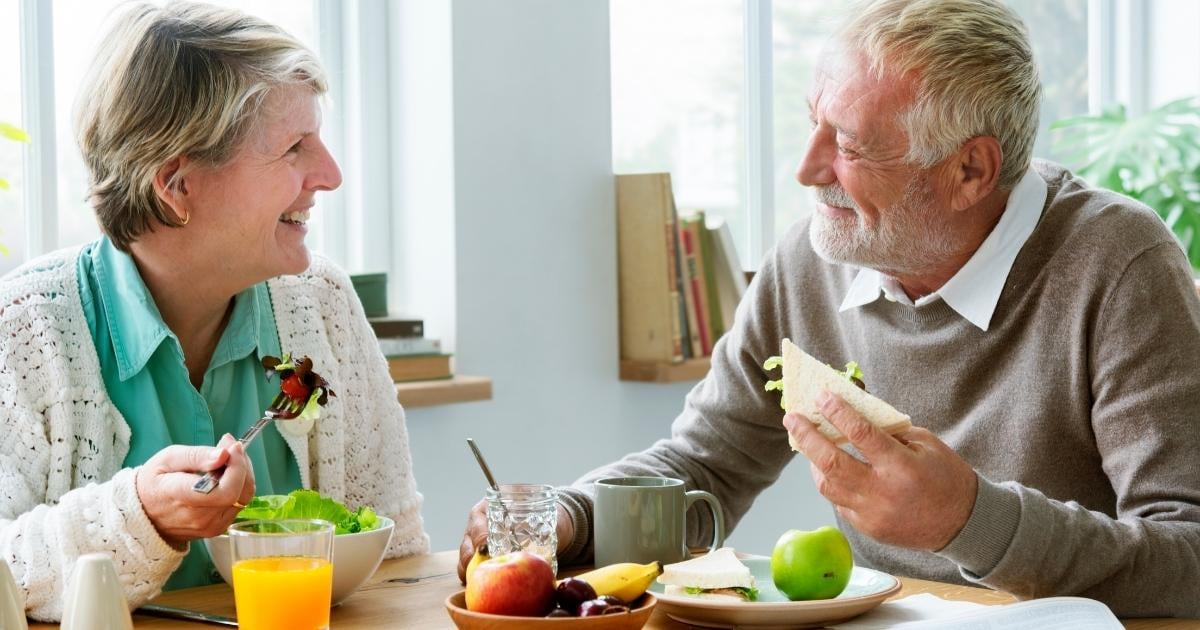As we age, the various modifications of our bodies’ composition are likely to occur. First of all, the natural decrease in body mass will affect strength; thus, with the anticipated decline of physical activity, we need fewer calories. The decrease of physical strength is observed among both men and women and is a natural part of the aging process.
Muscle activity is also affected by this process, yet there is no reason to gain weight. Additionally, the studies proved that the gaining of weight is not associated with the increase in strength and physical activity. Maintaining weight at the appropriate level by dieting and moderate physical exercise is the ideal goal.
By the age of 50, the muscles and body weight can easily be supported by a relatively active lifestyle. When creating a balance between muscle activity and calorie intake, both muscles and body weight were able to regulate each other.
Things like a busy lifestyle, traumatic loss, or injury can quickly result in loss of strength and an overall decrease in physical activity, opening the door to the various disabilities. These patterns often are observed in the aging population, which is why dieting and participating in sports appropriate to body mass and muscle abilities are so important.
Making the transition to an organic plant-based diet will improve to be results and is actually cheaper in the long run, for food and healthcare costs. When inorganic foods are consumed, the body fails to recognize the food is being eaten, and the lack of nutrition triggers the body to signal demands for more food to fulfill the nutritional needs.
However, when organic plant-based foods are consumed, then less is needed because the body is receiving and recognizing the nutrition derived from these foods.

Protein is among the macronutrients which are affecting the physical activity. There are micronutrients older adults require, such as Calcium, Vitamin K, and Vitamin C. Calcium is particularly helpful to minimize bone loss. Older adults have an increased risk of bone weaknesses, often leading to osteoporosis and hip fractures.
Moreover, it is common that older populations usually wear knee and wrist protection guards in efforts to decrease their risk for bone fractures. The Linus Pauling Institute provides a recommendation that older adults consume a multivitamin or mineral supplement to provide adequate levels of Vitamin K for healthy bones.
Additionally, it is recommended to include one or more cups of dark green leafy vegetables every day in efforts to decrease the risk of bone fractures.

It is becoming more evident that older adults need higher levels of Vitamin C due to chronic diseases related to older aging. A daily vitamin C intake of at least 400 milligrams is potentially essential for older adults who are at higher risk of chronic illnesses in which are partially triggered by damages related to oxidative stresses, such as stroke, specific cancers, cataracts, and heart disease.
There are various socioeconomic factors, which have a significant effect on health, wellbeing, and quality of life of aging populations. One of the most common associations with aging is that older people are unable to contribute to economic growth (hold a job, pay taxes, community participation).

This is a significant reason why older adults can feel excluded from society. Interestingly, being in this state affects nutrition and activity levels - and a lack of motivation is found to improve these circumstances.
Another socioeconomic issue associated with aging is the lack of resources. While younger people have a chance to achieve a better socioeconomic status, especially in developed countries, the aging population observes itself as the one needing to ‘settle down.’
Limited resources play a notable role in the self-defining of the elderly, often feeling there is no longer the chance to gain new exciting experiences. These factors directly damage the psychological and physiological state and should be taken into consideration when resolving health issues.
How Do We Break The Chain and Make a Better Experience?
Once place to look to for advice it to those who have proven to do it best, the centenarian communities of the worlds, better known as the Blue Zones.
They not only show the prime example of how to live a healthy life, but an all around happy life as well.
Between staying active, social, and productive, they balance out the psychological needs and have steady physical stability as well. We all have something to learn from these amazing people and the simple, yet rich lifestyles they lead.
Choosing a healthy plant-based and vegan diet is most beneficial when it comes to:
-
Higher levels of energy;
-
Improved sleep;

-
Aids in energy and overall happiness;
-
Provides a sense of comfort and relief;
-
Could prevent major diseases such as obesity and diabetes;
-
Accomplish weight-loss and management; and
-
Improves mental and cognitive functioning.
What is your biggest need for living your healthiest lifestyle? Are you looking for ways to improve your diet and boost your immunity? Let us know what you think of the article.
There are really no excuses not to try healthier habits in your everyday life. If you are a man or woman looking for specific benefits of adopting healthier habits or just want to know about the general healing properties of herbs. Have any follow-up questions? Please remember to comment or post any health questions or contact us directly! We love hearing your feedback!


















